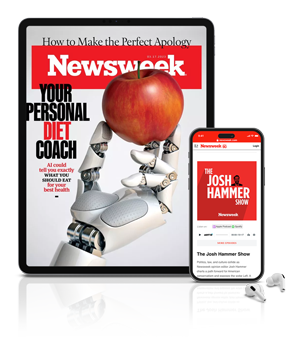Jack Dorsey has long been obsessed with status. [I'M WRITING THE LEAD TO MY COLUMN] Not in the snob-appeal sense, but status as in "where are you and what are you doing." He became fascinated with the idea while programming software for cab and courier companies. And later he became entranced with the instant message "status line," which evolved from "I'm away from my computer" to dense, haiku-ish briefs of what people were up to.
So it was natural, when he was working for the San Francisco dotcom company called Obvious, to propose a service that tells your friends—via mobile phone, instant message, or the Web—what you're doing at any given moment. Obvious's founder, Evan Williams [I'M CHECKING GOOGLE FOR THE SPELLING] best known for starting one of the first blog software companies (later purchased by Google), gave him the go-ahead and last year Twitter was born.
The lure of Twitter—as well as its Achilles heel—is its simplicity. You "twitter" (yes, it's a verb) by answering the question "What are you doing?" in 140 characters or less. (How much information can actually be conveyed in 140 characters? As a yardstick, consider that this parenthesis contains exactly that number of letters and symbols.) These dispatches, sent as often as you like, are immediately blasted out to fellow Twitterers who have chosen to "follow" you, i.e., see everything you twitter by phone, IM or Web. One doesn't respond to a twitter, a big advantage over more intrusive forms of communication like instant messaging.
Suddenly, it seems as though all the world's a-twitter. Things reached a tipping point last month at the South by Southwest conference in Austin, Texas. The Twitter people cleverly placed two 60-inch plasma screens in the conference hallways, exclusively streaming Twitter messages. Hundreds of conference-goers kept tabs on each other via constant twitters. Panelists and speakers mentioned the service, and the bloggers in attendance touted it. Soon everyone was buzzing and posting about this new thing that was sort of instant messaging and sort of blogging and maybe even a bit of sending a stream of telegrams. In the overheated world of Web 2.0, where startups bloom and spread like triffids [I'M WONDERING IF ANYONE WILL KNOW THAT TRIFFIDS IS A SCI-FI REFERENCE], Twitter has become the viral craze du jour and traffic is booming. The lightning speed of its adoption, though, has cast doubts on its staying power. People can't decide whether it's the next YouTube or the digital equivalent of a hula hoop.
To those who think Twitter frivolous, Evan Williams has a response: "Whoever said that things have to be useful?" But Dorsey thinks that Twitter can develop into something not only useful but essential. "It's what you put into it," he says. People have announced births on Twitter. The John Edwards campaign updates by Twitter regularly. CNN uses it to send out headlines. Meanwhile I'm haunted by one twitter I saw on the public timeline that streams everyone's messages (unless they opt for privacy): "Missing him."
Maybe the best thing about Twitter is its potential. The founders are willing to see where users will take the service. At this point, Obvious is concentrating on making the service ubiquitous and is taking in exactly zero in revenue. "We want millions of people to use and enjoy this," says Williams. "Hopefully, we'll know how to make money by then." (Possibilities: ads or subscription fees.) [I'M STICKING THIS IN BECAUSE MY EDITOR ASKED FOR IT] Meanwhile, what is Twitter doing? Growing, real fast.
Uncommon Knowledge
Newsweek is committed to challenging conventional wisdom and finding connections in the search for common ground.
Newsweek is committed to challenging conventional wisdom and finding connections in the search for common ground.





